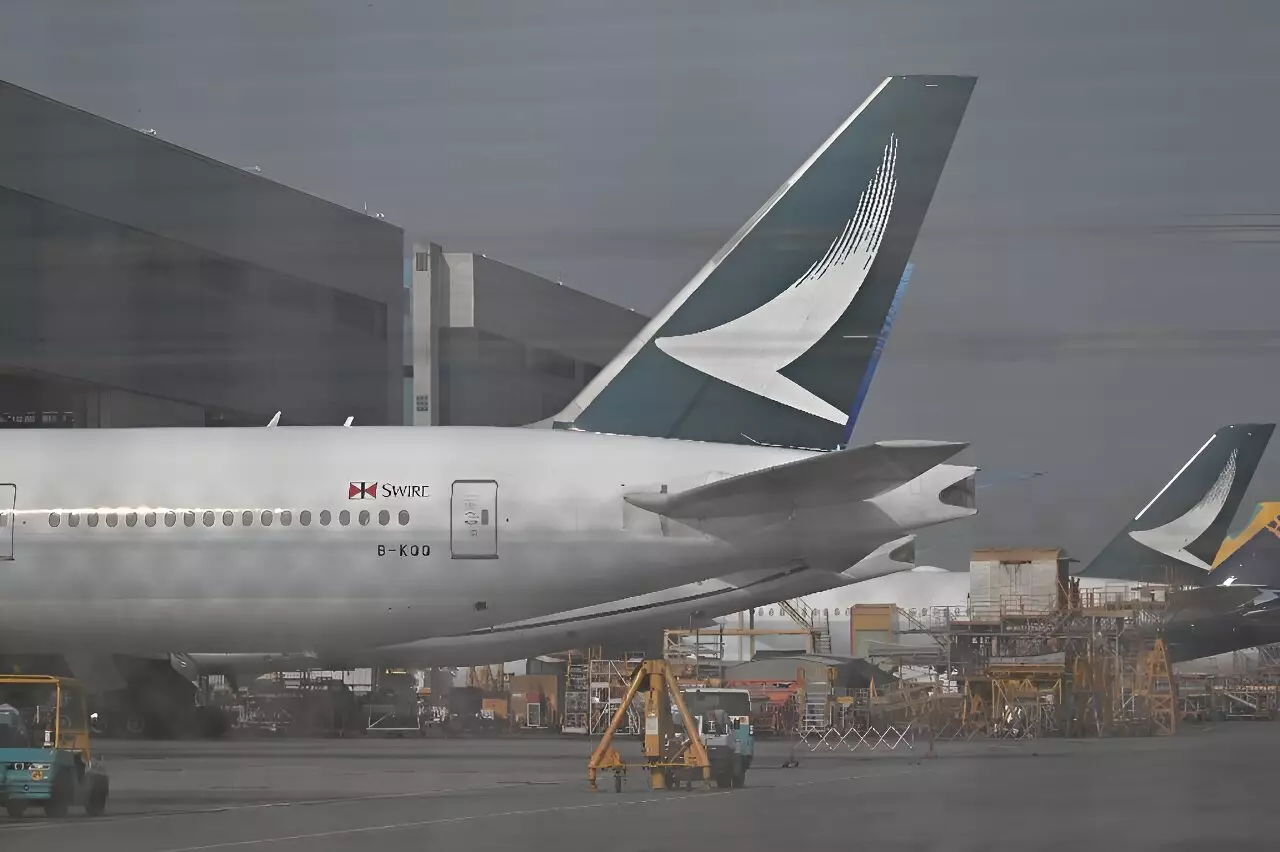In light of the recent engine fire on a Cathay Pacific flight involving an Airbus A350 aircraft, Europe’s aviation safety agency has mandated inspections for part of the A350 fleet currently in operation. The incident, which occurred shortly after take-off on a Zurich-bound flight, prompted Cathay to ground 48 planes for safety checks. The European Union Aviation Safety Agency (EASA) identified the cause of the engine failure as a high pressure fuel hose malfunction, resulting in an in-flight engine fire that was promptly extinguished.
EASA issued an emergency directive requiring inspections for A350-1000 aircraft powered by XWB-97 engines. While there are 86 such planes in operation globally, the directive does not impact the A350-900 model, which has 526 planes in service. The inspections are focused on examining fuel hose connections inside engines for any damages, with a timeline of 3-30 days for completion. Executive director Florian Guillermet emphasized that the directive is a precautionary measure to ensure the safety of passengers and crew.
Following the Cathay incident, airlines in the region, as well as the engine manufacturer Rolls-Royce, have taken action to address the issue. Rolls-Royce announced a “one-time precautionary engine inspection program” for a portion of the A350 fleet, specifically targeting A350-1000s powered by XWB-97 engines. Airbus and Rolls-Royce have communicated to airlines that only aircraft with this specific engine type are affected by the problem. Airbus, however, has not provided any immediate comments on the matter.
The Airbus A350, introduced as a competitor to Boeing’s 787 Dreamliner, has garnered significant popularity in the aviation industry with over 1,300 orders placed. The A350-1000, the largest version of the aircraft, boasts a capacity to carry nearly 500 passengers and a range of over 16,000 kilometers, making it a preferred choice for long-haul flights. Airlines like Qatar Airways, Cathay Pacific, and British Airways are among the major operators of the A350-1000 model.
The engine fire incident involving the Airbus A350 has raised concerns within the aviation community regarding the reliability and performance of the Rolls-Royce Trent XWB-97 engines. Emirates airlines CEO Tim Clark had previously expressed apprehension about the durability of these engines, prompting Rolls-Royce to commit to enhancing their performance. The incident has also impacted the stock market, with Airbus and Rolls-Royce shares experiencing a decline in value following the news.
The Airbus A350 engine fire incident serves as a reminder of the critical importance of stringent safety measures in the aviation industry. As investigations continue and inspections are conducted, stakeholders are closely monitoring the situation to ensure the continued safety and reliability of the A350 fleet worldwide.


Leave a Reply